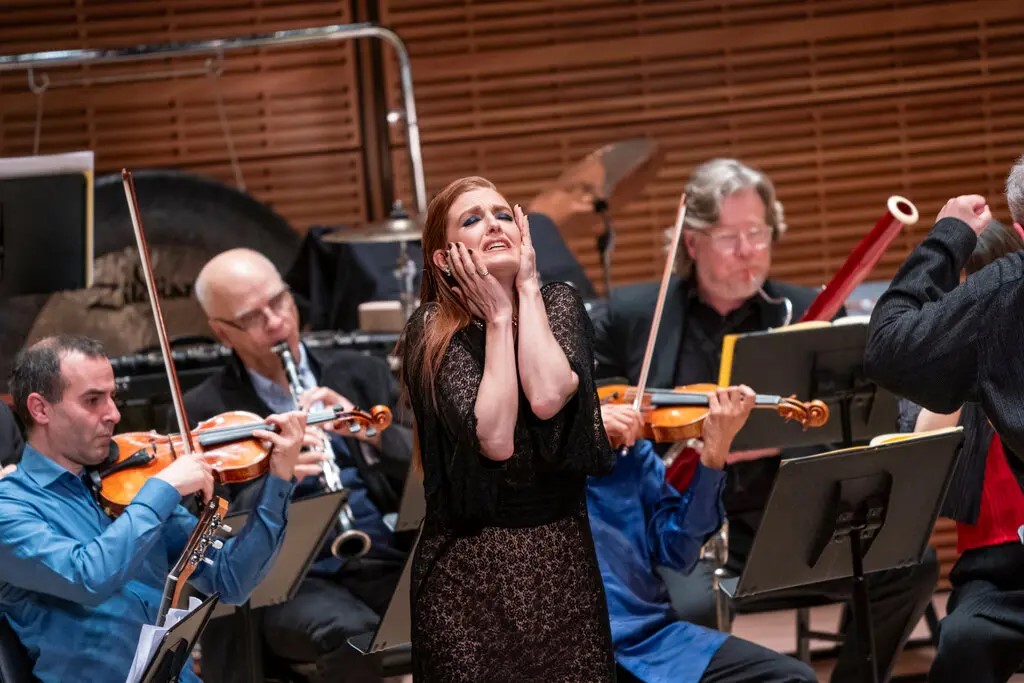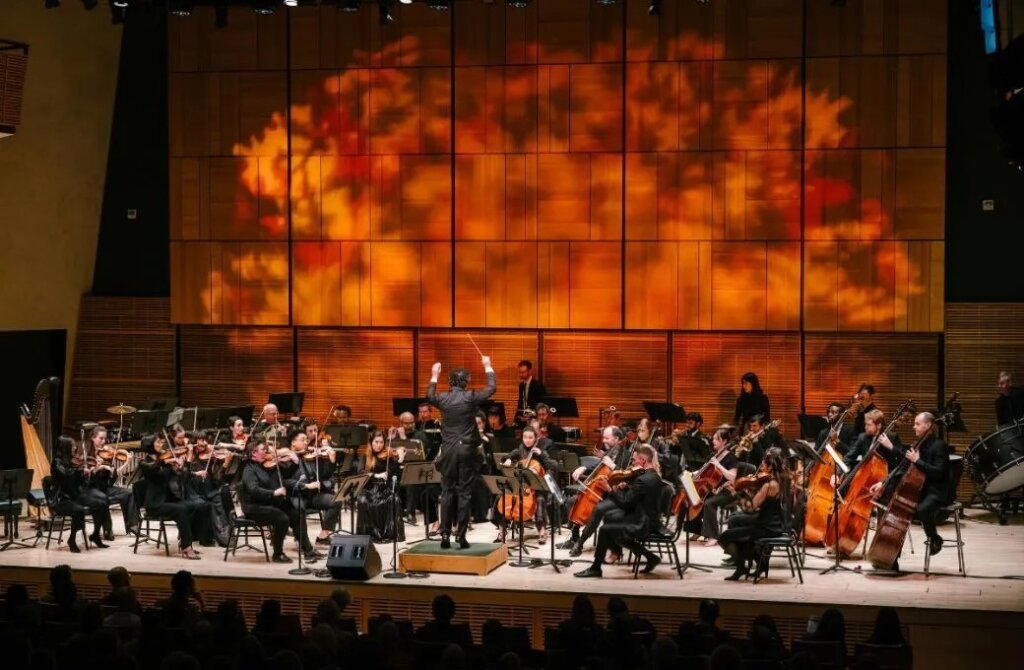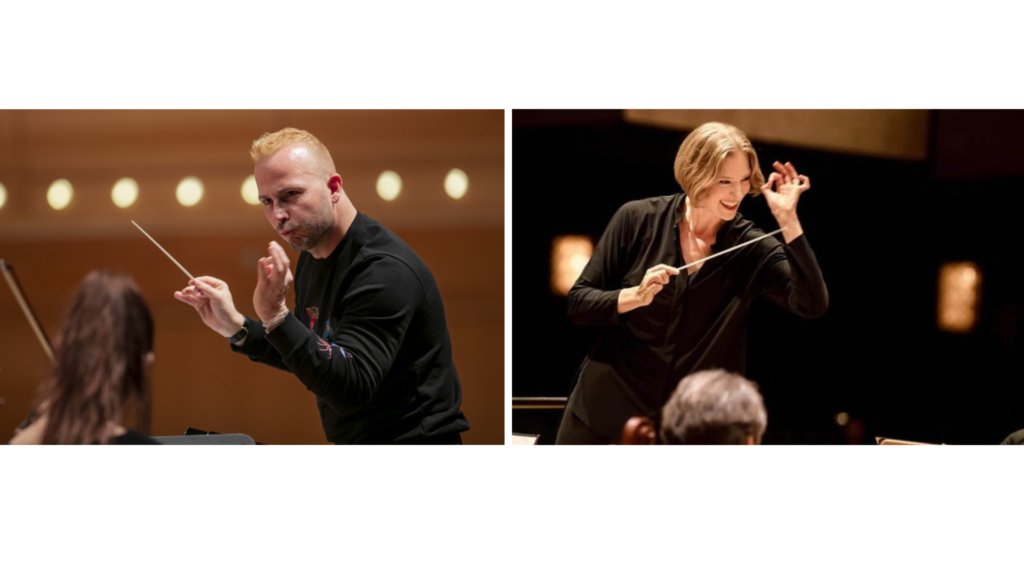Last Artistic Link to Kurt Weill and Lotte Lenya dies at age 90
Lys Symonette, Kurt Weill’s musical assistant on Broadway from 1945 to 1950, and Lotte Lenya’s accompanist and musical advisor from 1950 to 1981, died of a heart attack in Windsor, New York, on Sunday, 27 November, at the age of 90. At the time of her death, she was still active as vice-president of the Kurt Weill Foundation for Music, as well as its musical executive, having been appointed to that responsibility for Weill’s legacy in Lotte Lenya’s will in 1981.
Born Bertlies Weinschenk in Mainz, Germany, to Jewish parents in 1914, she began her musical studies with Lothar Windsperger at the Peter Cornelius Conservatory in Mainz. In 1936 she fled Germany and arrived in the U.S. via Italy and Cuba, with the aid of the Leventritt family. Shortly thereafter, she enrolled as a piano and voice student at the Curtis Institute in Philadelphia, where she studied with Vera Brodsky and Elisabeth Schumann, respectively. There she met composer Ned Rorem and subsequently was the first singer to perform his songs in public. In the early 1940s she appeared regularly in clubs with Alberta Masiello (who later became an assistant conductor at the Met and a Texaco broadcast intermission fixture for 40 years) as the two-piano team, “Yola and Lisa” (the Mexican sisters).
After seeing Lady in the Dark and On the Town on Broadway, she took a lively interest in the American musical theater. In 1945 she landed her first job as rehearsal pianist on the recommendation of Maurice Abravanel, conductor of Weill’s and Ira Gershwin’s ill-fated Broadway operetta, The Firebrand of Florence. Because she could also sing, she doubled, under the stage name Lys Bert, as “swing girl” for the chorus. When a young Billy Dee Williams couldn’t sing “Make Way for the Duchess” for the grand entrance of Lotte Lenya in her Broadway musical debut, Lys sang his part offstage. For the next 60 years, she would devote her talents to Weill’s work and Lenya’s career.
She played backers’ auditions and coached the singers for Weill’s Broadway opera Street Scene, as well as his and Alan Jay Lerner’s “concept musical” Love Life, and finally the musical tragedy Lost in the Stars, starring Todd Duncan and directed by Rouben Mamoulian. She also served as the young Julius Rudel’s assistant for summer stock, and in 1949 she commenced her career as a translator with Weill’s one-act comic opera, The Czar Has His Photograph Taken, at the Metropolitan Opera Studio. Shortly after Weill’s untimely death in 1950, Lys married the bass-baritone Randolph Symonette (1910-1998), who had played the Hangman in Firebrand. For the next decade she devoted her energies largely to her husband’s career in German opera houses, coaching him in the German repertory, especially the great Wagnerian roles which he initially had to learn phonetically. In 1955 her translation of Street Scene premiered at the Deutsche Oper am Rhein in Dusseldorf, a major milestone in the European reception of the then-unknown American Weill. That year she also sang the role of the Mother on the MGM recording of Weill’s school opera, Der Jasager. Subsequently her translation of Lost in the Stars (Der weite Weg) debuted in Nuremberg.
After a decade in Germany, she and her husband returned to New York, where he sang at the Met and she accompanied Lotte Lenya for performances of Brecht on Brecht off-Broadway at the Theater de Lys. For the next twenty years, she would serve as Lenya’s accompanist and musical advisor. She also adapted Weill’s unfinished score for Huckleberry Finn (Maxwell Anderson) as a film musical for German television, and in 1968 moved to Tallahassee with her husband, who taught voice at Florida State University. In 1970, artistic and legal disputes over Carmen Capalbo’s off-Broadway production of The Rise and Fall of the City of Mahagonny brought her back to New York as Lenya’s musical representative at rehearsals and performances, and ultimately Lys shared translation credit for the libretto with poet Arnold Weinstein.
In 1974 she joined the faculty of the Curtis Institute as vocal coach, and assumed more and more responsiblities as Lenya’s assistant. In 1978 she and librettist Robert Vambery collaborated on a new version of Weill’s satirical operetta Der Kuhhandel (a new production of which by David Pountney will open next spring at Opera North and then move to the Vienna Volksoper). Using unpublished incidental music from some of Weill’s forgotten German works, Lys collaborated with Harold Prince on his production of Hugh Wheeler’s adaptation of Der Silbersee (Silverlake) at New York City Opera. In response to Teresa Stratas’s spectacular portrayal of Jenny in Mahagonny at the Metropolitan Opera in 1979, Lys assembled a collection of unpublished Weill songs for Stratas which resulted in the award-winning Nonesuch recording The Unknown Kurt Weill, as well as the songbook of the same title, which Lys edited. As a direct result of her efforts, those songs have now entered the standard vocal repertory.
Shortly before her death in 1981, Lenya, with Lys’s counsel, hand-picked a group of trusted friends and colleagues, including Julius Rudel and Harold Prince, to serve as trustees of the Kurt Weill Foundation, which had been incorporated in 1962 but had hitherto lain dormant as a seldom-used tax shelter. In her will, Lenya designated the Foundation her principal heir and adminstrator of Weill’s copyrights and named Lys its musical executive. Also elected the Foundation’s vice-president, Lys and Kim Kowalke, Lenya’s successor as president, salvaged as much archival material as possible from Lenya’s house in Rockland County and began the process of establishing the Foundation as a vital non-profit educational organization devoted to the protection and promotion of Weill’s legacy. The initially asset-less Foundation soon opened the Weill-Lenya Research Center in New York, initiated an annual grants program (which to date has distributed two million dollars to arts organizations, schools, scholars, and students), and launched a critical edition of Weill’s music, as well as an annual singing competition in Lenya’s honor.
After resigning from the Curtis faculty in 1985, Lys devoted her energies full-time to her Foundation responsibilities, translating and editing Weill’s works, and supervising productions, broadcasts, and recordings of Weill’s music, especially in Europe. She took particular joy in nurturing the talent of young singers and conductors and was a moving force in establishing an annual Weill festival in his home town of Dessau. For several years she worked with Burgess Meredith on a new version of Johnny Johnson, which was never produced. In 1996 her and Kowalke’s edition of the Weill-Lenya correspondence, Speak Low (When You Speak Love), won ASCAP’s Deems Taylor Prize, the George Freedley Memorial Award, and was named a notable book of the year by both the New York Times and the Financial Times (London). The book appeared in German two years later, and it is now being adapted as a German television mini-series and as a musical play by Hal Prince and Alfred Uhry. Publication in 2000 of her edition of Weill’s letters to his family coincided with the centenary celebration of Weill’s birth, and Lys played a key role in major festivals around the world, including the New York Philharmonic premiere of a concert version of Street Scene. At the time of her death, she was still actively engaged in the work of the Foundation.
In 1998, the Board of Trustees honored Lys as the third recipient of its “Lifetime Achievement Award.” A consummate musician and coach, a sensitive translator of German into English and vice versa, she was, as Hal Prince has described her, “the real thing–full of old world graces to match her brains, talent, and loyalty.” With tireless energy and commitment, as well as extraordinary warmth and kindness, she devoted fully six decades of her long and productive life to the composer whose songs she had loved as a teenager in Germany and whose devotion to his adopted country and its musical theater she would passionately share.
Survivors include her son Victor, daughter-in-law Susan, grandsons Adam and Chandler, and sister Ingrid. She was much loved and will be sorely missed. She was the last and irreplaceable link to the inner artistic circle of Weill and Lenya.
Kim H. Kowalke
President, Kurt Weill Foundation for Music


